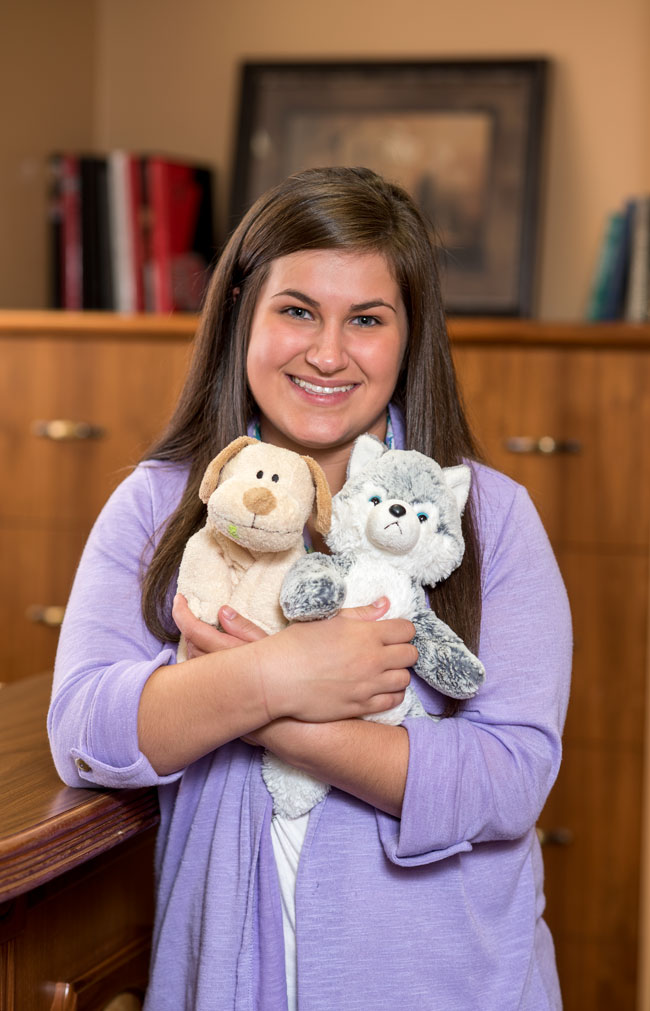Research Spotlight: Protecting Our Children
If a child cuddles a dog for comfort while giving testimony in a jury trial, will the “cuteness” of the dog influence the jury? Is there evidence to confirm, as defense attorneys assert, that the “cuteness” of support objects may bias the jury and result in an unfair trial for the defendant? These are the questions examined by Sky Johnson’s research in the A-State Forensic and Applied Cognition in Society Research Laboratory.
Johnson, a senior undergraduate psychology major, uses mock trials to evaluate the effects on juror perceptions of the consistency of a child witness’ testimony. “Being in a courtroom, surrounded by strangers can be very frightening for a child,” Johnson explained. “The fear and stress can cause the child to become more vulnerable to suggestion by attorneys and can decrease the accuracy of the child’s testimony.” Johnson measures juror reactions when the child is petting a support dog or another object. So far, in comparison to the other objects, the dog has had no biasing effects.
Her faculty mentor, Christopher Peters, said Johnson approached him with her research idea and a request to join his research group. Johnson had a passion to serve children through her career. Though Peters’ research interest was primarily with forensics and didn’t involve children, they agreed to combine their interests to create a new direction of research that has been largely unexplored. “There isn’t a lot of research in child forensic psychology,” said Peters. “Most of the existing research is very basic about child memory. There isn’t much knowledge about the impact of trauma, stress and overall anxiety on a child witness’ ability to provide accurate testimony.”
Johnson’s research was funded by a Student Undergraduate Research Fellowship from the Arkansas Department of Higher Education. “I quickly learned that to have a successful career in psychology, you must have research experiences as an undergraduate. It is critical to advance my career,” she said. Johnson’s goal is to work with children one-on-one as a clinical psychologist while staying active in research, which will allow her to provide her clients with the best treatment possible.






